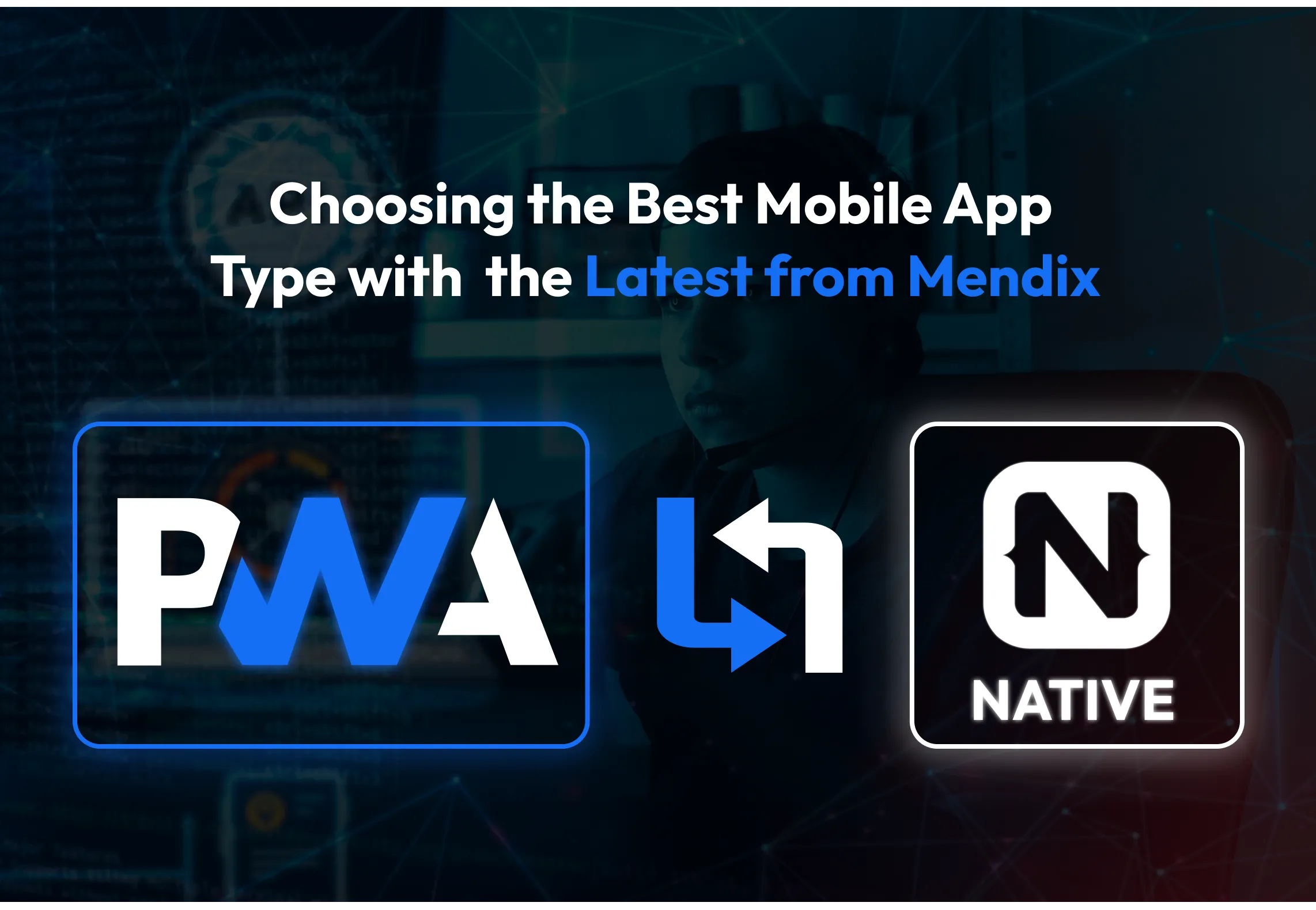PWA or Native? Choosing the Best Mobile App Type with the Latest from Mendix

Mobile apps are everywhere—and with Mendix, you’ve got two powerful ways to build them: Progressive Web Apps (PWAs) and Native Mobile Apps. With the explosion of mobile-first strategies, choosing between Progressive Web Apps (PWA) and Native Mobile Apps is no longer just a technical decision—it is a strategic one. Mendix has continued to push boundaries on both fronts, giving developers and enterprises powerful options tailored to different use cases. Though they fulfil different purposes, both are excellent. The big question is: which one should you use?
In this post, we will cover:
-
What is new in Mendix Native Mobile
-
A side-by-side look at PWA vs Native
-
A simple guide to help you choose the right one for your next project
What’s New in Mendix Native (2025 Update)
Mendix Native apps are now faster, smoother, and more powerful than ever. Here is what is new and exciting:
1. Better Animations and Gestures
You can now build apps with smooth transitions and interactive effects using properties like whileHover, whileTap, and transition. This gives your app a contemporary and interesting feel.
2. Faster App Launch and Better Performance
Updates to React Native and how Mendix bundles the code make apps start quickly and run more smoothly—even on older phones.
3. Easy Access to Phone Features
It is now easier to use things like the phone’s camera, location, fingerprint scanner, and even push notifications with native modules and ready-made widgets.
4. More Widgets and Design Options
There are more native widgets than ever, plus improved styling tools. You can fully customize how your app looks using classes and themes—no need to write lots of custom code.
A Comprehensive Comparison of PWA and Native in Mendix
| Feature | PWA (Progressive Web App) | Native Mobile App |
|---|---|---|
| Install Method | Via browser prompt | Through app stores |
| Works Offline | Basic (limited caching) | Fully supports offline mode |
| Speed | Good (browser-based) | Fast (uses phone’s hardware) |
| Phone Features (camera, GPS, etc.) | Limited | Full access |
| Push Notifications | Some browsers only; iOS is limited | Fully supported |
| App Updates | Instant updates | Needs store approval (unless using live updates) |
| How You Share It | URL link | App store download |
| Build Time | Fast for simple apps | More time but more power |
| Security | Runs in browser | Stronger protection using OS |
| Custom Features | Not supported | Supported with JavaScript and native code |
| Best For | Forms, simple tools, MVPs | Field apps, secure tools, offline apps |
Quick Tips: When to Use What?
| If You Need… | Go With |
|---|---|
| Camera, GPS, or fingerprint access | Native |
| App that works offline anywhere | Native |
| Download from app stores | Native |
| Fast release without store approval | PWA |
| Simple, form-based tools | PWA |
| Easy sharing via link | PWA |
| Advanced animations and device integration | Native |
On Conclusion:
Mendix gives you powerful options for mobile development—PWA and Native. Each works well for a variety of apps
If your app needs to work offline, access phone features like the camera or GPS, or give users a smooth, app-like experience, then Native is the better choice. Mendix Native has come a long way and is ready for serious apps.
But if you need something fast to build and easy to share, especially for a wide audience or external users, PWA is a great fit. You can deploy updates instantly, and users do not need to download anything.
Think about what your users need, where they’ll use the app, and what features it must have. That will help you decide the right path.
Need help deciding or want to see examples of real Mendix PWA and Native apps? Speak with a certified Mendix partner at MxTechies; we'd be pleased to provide resources and advice!